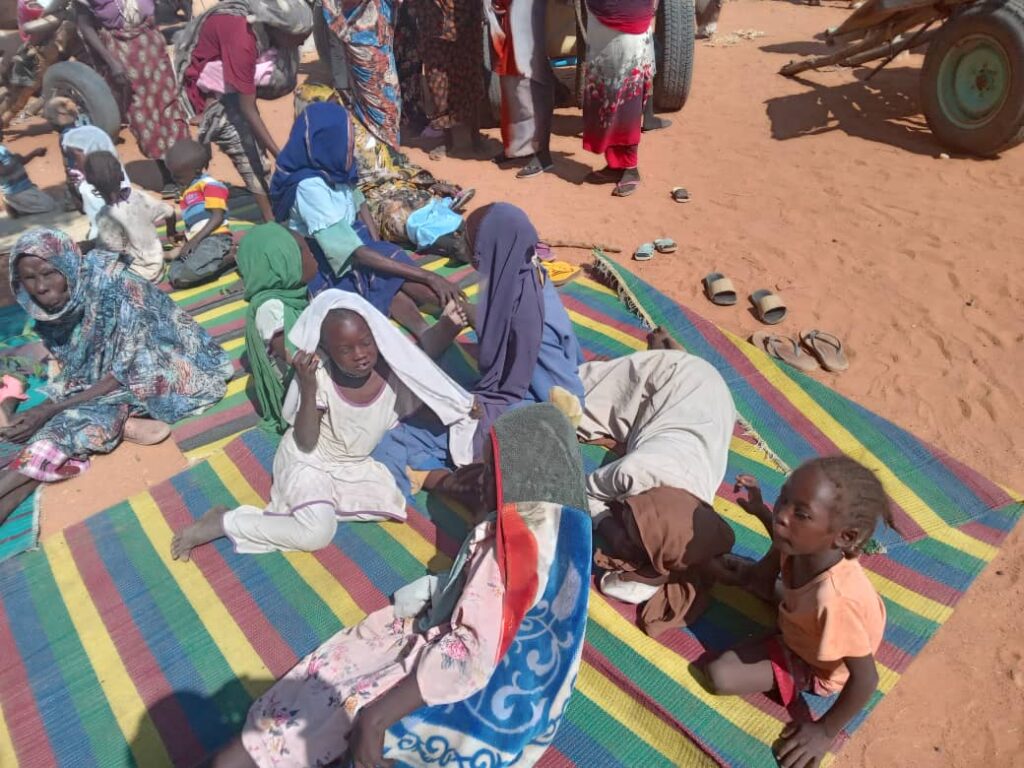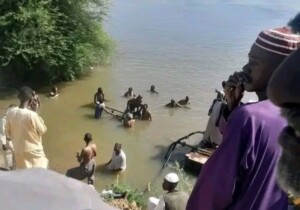Authorities impose state of emergency in South Darfur as death toll rises

On December 25, newly displaced people arrive at Kalma, Otash, and Dereig camps in South Darfur (Photo: Darfur Network for Monitoring and Documentation)
The death toll from ongoing attacks on villages launched by gunmen in Beleil locality, South Darfur, has risen to 15, prompting the South Darfur authorities to impose a state of emergency and a curfew from Saturday evening.
At least 30 people have been wounded since a series of attacks on villages east of Nyala broke out on Wednesday, however, there are conflicting reports about the number of victims.
Yesterday, the South Darfur Security Committee and the police chief said in a joint statement that 11 people were killed, including a policeman and a member of the Rapid Support Forces (RSF).
According to the statement, 21 people were injured, among them three policemen, and seven villages were partially torched. No new attacks took place since Saturday evening due to the imposition of the curfew in the area.
Sultan of the Daju tribe Jaafar Adam Ibrahim said in a meeting with the Darfur Bar Association (DBA) yesterday that 15 people were killed, “among them a policeman and a driver belonging to the armed forces”, in an ambush set up by the attackers. In addition, a boy named Saber Abdelhamid was shot and kidnapped. 11 villages were scorched, he said.
The sultan said that the victims hold the RSF responsible for the attacks, and demand their removal from the area.
One of the leaders of the Daju, Saleh Eisa, described the attackers as “organised militiamen backed by government forces who arrived in four-wheel drive vehicles and on motorcycles, camels, and horses.”
He said that they came from various places in Darfur. “Before they burned the houses, they robbed the villagers of all their belongings,” he added in an interview with Radio Dabanga yesterday. The Daju community leader called for “international protection for all civilians in Darfur”.

(Photo: Darfur Network for Monitoring and Documentation)
Eisa also told Radio Dabanga that a number of the dead and wounded could not be moved due to the closure of the roads in the area. All residents of the affected villages fled, he said, adding that “hundreds of them are stranded and unable to reach safe areas due to road closures and insecurity.”
Adam Hamed, head of the sheikhs of the Damma camps for the displaced, 10 kilometres north of Nyala, told Radio Dabanga that people who fled the attacks on their villages began arriving in the camps on Friday.
He reported that the 250 families and 47 unaccompanied children from Beleil are extremely worried about the fate of their relatives. “They come from Hajir Sembo, Arba Jimeiza, Dagali, Kertemo, Hemeda, and Kosoko, about 10 kilometres north-east of Damma. They say that all houses in Hemeda and Kosoko have been burned to the ground. Other villages were partially scorched.”
Other sources of Radio Dabanga reported the arrival of villagers in Nyala and Kalma and Dereig camps. Hundreds of families are stranded in the eastern area of Ta’asha, they said, calling for safe passages to be opened for those fleeing the violence.
The sources said that, since the beginning of December, the villages in the area east of Nyala have been attacked and plundered eight times.
Security situation
The acting governor of South Darfur, Hamid El Tijani, said that the situation in Beleil locality is 90 per cent stable. In a press statement after meeting with the South Darfur Security Committee yesterday, the governor announced that “the outlaws were cordoned off”, and reported a mass deployment of regular forces in the locality and the establishment of a number of police support posts.
The statement by the security committee and police chief said that a joint force consisting of 400 army soldiers, RSF paramilitaries, policemen, and members of the General Intelligence Service (GIS) arrived at the affected areas yesterday.
They seized two vehicles and two tuk-tuks carrying armed men and official complaints have been filed against them at the Beleil police department, according to the statement. As for the villagers who fled their homes, the authorities are exerting effort to secure the areas so that the displaced are able to return and finish harvesting their crops.
Emergency aid
Tijani called on the displaced to return to their villages and said that the South Darfur government has been able to secure the area and will provide what they need to complete the harvest on their farms. Emergency aid will be provided to the victims, he said.
Lawyer Saleh Mahmoud, chair of the DBA, told Radio Dabanga that the villagers taking refuge in Kalma and Dereig camps for the displaced need urgent assistance and protection.
He said that the violence probably “aims at seizing the lands of the indigenous inhabitants.”
The DBA is investigating who should be held responsible for the attacks. They will take legal steps and report on their findings in a press conference at the end of this week, said Mahmoud. Memorandums will be handed to the relevant authorities by the DBA after the press conference.
On December 14, Radio Dabanga reported a number of attacks on civilians by armed men in Darfur. “A new wave of attacks on civilians in Darfur since mid-November 2021 highlights the urgent need for the UN to enhance its scrutiny of the restive region of Sudan,” said Human Rights Watch in a statement the day after.
Darfur has a long history of strife between nomadic Arab herders and non-Arab African herders or sedentary farmers. Arab tribesmen were recruited by the previous regime of dictator Omar Al Bashir to join the Janjaweed militias. Al Bashir employed these Arab militias to repress a revolt over ethnic marginalisation in the region, mainly targeting non-Arab African farmers.











 and then
and then